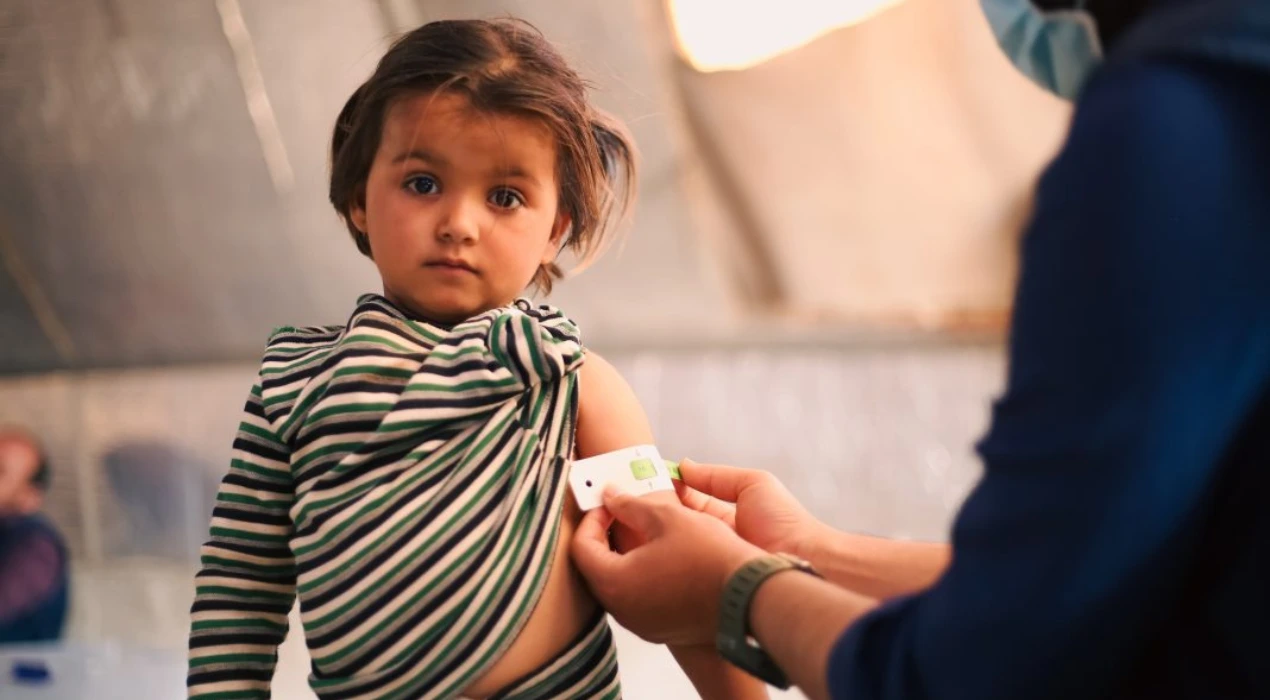UK Health (Parliament Politics Magazine) – The UK has welcomed severely ill children from Gaza with their families, offering urgent specialist treatment through NHS hospitals nationwide.
The humanitarian evacuation takes place as Gaza’s healthcare infrastructure collapses, leaving many children without access to even the most basic care.
The operation, which was organized by a cross-government commission and involved safe travel through Jordan and thorough security screening, demonstrates the UK’s dedication to providing care, upholding patient dignity, and advocating for more humanitarian access for Gaza.
With many adults and children unable to receive basic healthcare and additional barriers to receiving specialized care and support, Gaza’s healthcare situation is very severe.
After a multifaceted humanitarian effort by a cross-government taskforce, children and their families have now arrived in the UK and will have access to top-notch NHS care.
Health and Social Care Secretary, Wes Streeting, said:
“No one can fail to be distressed by the devastating impact the war has had on the children of Gaza, and I cannot imagine the fear and anguish their families have endured. It is a soul-destroying situation that compels us to act.
Every child deserves the chance to heal, to play, and to dream again. These young patients have witnessed horrors no child should ever see, but this marks the start of their journey towards recovery.
This reflects the very best of our NHS values – compassion, care and expertise when it matters most.”
Foreign Secretary Yvette Cooper said:
“Children are too often the innocent victims of war. In Gaza, where the healthcare system has been decimated and hospitals are no longer functioning, there are severely ill children unable to get the medical care they need to survive.
As we welcome the first group of children to the UK for urgent treatment, their arrival reflects our determined commitment to humanitarian action and the power of international cooperation.
We continue to call for the protection of medical infrastructure and health workers in Gaza, and for a considerable increase in medicines and supplies to be allowed in.
The Government is grateful to all partners who have assisted this operation, including the World Health Organisation for their support with the evacuation process, the Government of Jordan and Royal Jordanian for facilitating safe transit, and the UK-Emergency Medical Team and NHS clinical teams for their dedication in providing life-saving medical care to these young patients.”
To safeguard patient privacy and individual safety, the government is keeping information on the medical care and whereabouts of the Gaza youngsters secret.
The UK is still pressing the Israeli government to provide essential medical care to Gazans, including increasing medical evacuations and enabling supplies and medications to enter Gaza. The UK government is adamant about the necessity for a two-state solution, an immediate ceasefire, the release of all hostages brutally held by Hamas, and an unhindered flow of humanitarian aid into Gaza.
Professor Meghana Pandit, NHS National Medical Director, said:
“These children are severely unwell and in need of urgent medical treatment, and we will do all we can to help provide them with a safe and secure place to receive the vital care and treatment they so desperately need.
NHS specialists at hospitals across the country are providing crucial treatment to help these children and their families – and we are incredibly grateful to hospitals, staff, and volunteers who are supporting these efforts.”
What are the long-term health needs of Gaza children displaced by conflict?
Numerous children encounter traumatic injuries and disability, amputations, traumatic brain injuries, and chronic medical conditions due to war-related violence and limited access to adequate healthcare systems.
Injuries often require extensive ongoing rehabilitation needs, including medical care from a specialized physician, physiotherapy, rehabilitation equipment such as wheelchairs and prosthetics, and continuous assessment for further functional outcome improvement.
Barriers to accessing rehabilitation services occur as a result of movement restrictions, destruction of medical infrastructure/services, and the unavailability of medications and equipment.
War-related trauma contributes to high rates of anxiety, depression, sleep disorders, and post-trauma anxiety in children affected by violence.


